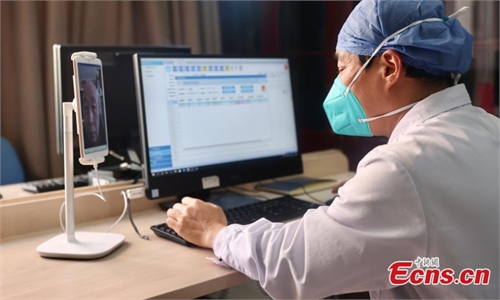Experts say side sleeping is probably the better way to sleep. — Dreamstime/TNS
During sleep, the body recharges and repairs itself.
And a good night’s sleep often can be determined by what position you are lying in bed.
Back-sleepers beware.
“I know many people find it to be comfortable, because they’re not putting weight on their joints,” says Dr Lois Krahn, a Mayo Clinic sleep specialist.
But experts say sleeping on your back is actually the worst sleeping position, especially if you have sleep apnea.
“Sleeping on the back means that your tongue and jaw can fall down and crowd your airway. And many people snore more on their back,” says Dr Krahn.
Sleeping on your stomach helps keep the airway open, but it can put a strain on your spine and neck.“There’s a host of evidence overall suggesting that probably sleeping on the side is better,” says Dr. Virend Somers, a cardiologist and director of the sleep facility within Mayo Clinic’s Center for Clinical and Translational Science.
Side sleeping helps prevent the airway from collapsing and can reduce snoring.
“And so, all in all, sleeping on the side – perhaps with their head slightly elevated as long as that’s comfortable – is a good way to sleep,” says Dr Krahn.
Side sleeping is also recommended during pregnancy, especially the last trimester.
And sleeping on the left side is best because it keeps pressure off internal organs and promotes healthy blood flow.
“When you are in that third trimester of pregnancy and when you sleep on your back, the uterus is compressing your inferior vena cava (the largest vein in the body).
“It’s compressing the arterial system,” says Dr Somers.
Sleeping on your side also is considered by the Sleep Foundation as the best for people with neck and back pain, especially if you place a small pillow between your knees.
“Because if you don’t have a pillow between your knees, that stress of sleeping on the side pulls on your hip and can cause some issues,” says Dr Somers. – Mayo Clinic News Network/Tribune News Service
Sleeping soundly
Are you getting enough sleep?
A good night’s sleep is not a luxury. It is a necessity as it allows your body and mind to recharge and recover from exertion. The average adult needs between seven to nine hours of sleep a day.
There are many reasons you should call it an early night. These include boosting your concentration, improving athletic performance, promoting skin health, enhancing your mood, relieving stress, regulating blood pressure, strengthening immunity and maintaining a healthy weight.
A few hours of sleep loss each night puts a major damper on your quality of life beyond daytime drowsiness. Regularly skimping on sleep can have cumulative impacts, which can be far more severe than you thought. It can interfere with your cognitive abilities and eventually cause reduced concentration, impaired memory and anxiety. Being sleep-deprived will put you at an increased risk of cardiovascular diseases, obesity and diabetes.
How to sleep better?
Synthetic sleeping pills may seem like a quick band-aid. They can help you fall asleep but can cause several side effects including prolonged drowsiness the next day, nausea and dry mouth. Other risks include drug dependence, withdrawal symptoms and rebound insomnia.
For a sustainable solution, consider trying herbal remedies to calm your racing thoughts and ease into restful sleep. Unlike synthetic pills, these herbs are nonhabit forming and do not cause any unpleasant side effects.
Sedating herbs like Chinese dates, passion flowers, hop and valerian root have been used since ancient times to promote tranquillity and improve sleep. These herbs work by increasing the levels and activity of gamma-aminobutyric acid (GABA), a chemical messenger which reduces the activity of the neurons in the brain and central nervous system, helping your body and mind to relax and sleep. Together, they may help you fall asleep faster, reduce night-time awakenings and sleep for longer.
Getting adequate sleep is essential for your health and well-being. Nonetheless, the quality of your sleep is just as important. Sleep better and start each day afresh and energised.
This informational article is brought to you by Vitahealth. PressReader.com | Sleeping soundly
Related stories:
Sleep well for the sake of your heart
Eat and sleep well – recipe to Qingchen-Yifan’s success
Are you losing sleep over the quality of your sleep?

Related:
Beijing to further regulate online medical services, prohibit AI generated prescriptions
Beijing municipal health authorities have started soliciting public opinions on a
set of trial measures aimed at regulating online diagnosis and treatment.
The trial measures require medical institutions to strengthen drug
management and prohibit the use of artificial intelligence ...
Related posts:
What is the best sleeping position?
Here's a diet to help you
live a long life




